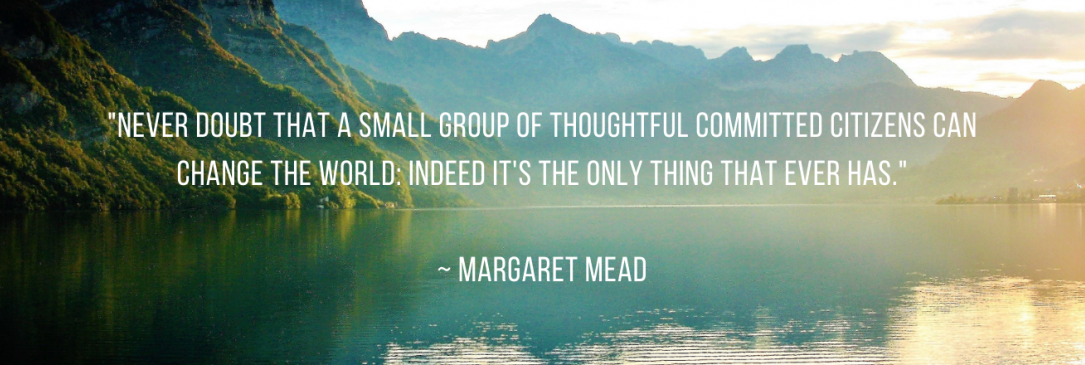Dr. Richard Clark, Sociology and Criminology
Dr. James Watling, Biology
Mr. Jeff Your, Laboratory Logistics and Support Specialist
Ms. Annamarie Habusta, Sophomore
Ms. Nina Savastano, Senior
Ms. Sara Sfeir, Sophmore
Faculty:
Dr. Dan Kilbride, History
Dr. Mark Waner, Chemistry
Dr. Jim Lissemore, Biology
Dr. Jen Ziemke, Political Science
Dr. Jeff Johansen, Biology
Dr. Tina M. Facca-Miess, Marketing
Staff:
Jeff Your, JCU Sustainability Committee
Sr. Katherine Feely, Center for Service and Social Action
Dr. Anne McGuiness, Campus Ministry
Dr. Ed Peck, University Mission & Identity
Dr. Carlo DeMarchi, Assistant Dean, Academic Success
Students:
Myron Tibbs, Black Students in Action
Gia Hamed, Palestine Justice Group
Maria Coughlin, Environmental Issues Group
Cody Weigand, Arrupe Scholars
John Carroll Alum:
Kristin Hall, Class of 2006, Executive Director, Cuyahoga Soil & Water Conservation District
Group 1: Dolan Reading Room 8:00
Moderator - Annamarie Habusta
Dr. Dan Kilbride, History - US Foreign Policy and Climate Change
Dr. Jen Ziemke, Political Science - National Security Concerns and Climate Change
Dr. Jeff Johansen, Biology - Water issues and Climate Change
Dr. Carlo DeMarchi, Assistant Dean, Academic Success - Climate Change and its Implications for Immigration
Cody Weigand, Arrupe Scholars - The work of the Association for Advancement of Sustainability in Higher Education (AASHE) and its STARS program. STARS is a transparent, self-reporting framework for colleges and universities to measure their sustainability performance.
Group 2: Dolan E 116 8:00
Moderator - Nina Savastano
Dr. Mark Waner, Chemistry - Flint Michigan Water Crisis and Environmental Justice
Jeff Your, JCU Sustainability Committee - The work of the JCU Sustainability Committee
Kristen Hall '06, Executive Director, Cuyahoga Soil & Water Conservation District - Cuyahoga County's Work on Sustainability
Maria Coughlin, Environmental Issues Group - A Student Perspective on Sustainability at JCU
Dr. Anne McGuiness, Campus Ministry - Climate Change and its Impacts on JCU Immersion Programs
Dr. Tina M. Facca-Miess, Marketing - Teaching and Learning Integrative Justice and the Sustainable Development Goals
Group 3: Dolan E 120 8:00
Moderator - Sara Sfeir
Dr. Jim Lissemore, Biology - Honduras Medical Brigade and Climate Change
Myron Tibbs, Black Students in Action - TBD
Gia Hamed, Palestine Justice Group - How climate change affects life in Palestine leading to increases in vulnerability, and how these changes fit into the framework of occupation and apartheid.
Dr. Ed Peck, University Mission & Identity - Laudato Si and What it Means for JCU
Sr. Katherine Feely, Center for Service and Social Action - Sustainability and the Work of CSSA
Breakout Session: Dolan Atrium 9:00
John Carroll University:
Sustainability Committee: Visit us on Instagram or Facebook.
Laudato Si': Read more here.
Environmental Issues Group: Visit our website, Instagram accounts, @jcueig and @jcusustainability, or Facebook page.
Students for Justice in Palestine: Visit our Instagram.
Sustainability Retreat:
Join us April 22-23 for the Sustainability Retreat at Camp Christopher. This retreat is a dream project of the Sustainability group, and we are so excited to try this out! We are basing this retreat on the Laudato Si document from Pope Francis, and we are looking forward to diving a little deeper into the goals of Laudato Si. We are going to be doing some learning, spending time outside, and reflecting on our individual and communal responsibility to our Common Home, Mother Earth. This retreat is open to ALL students. While this retreat is rooted in Laudato Si, a document by Pope Francis, we are not limiting to just students of the Catholic Faith. We are looking to combine education, passion for the environment, and spirituality (however that may look for you!). The deadline to sign up is Sunday, April 17 at 11:59pm! Register here. If you have any questions regarding the retreat or registration process, please contact Shelby Smyth (sdsmyth23@jcu.edu).
Additional Resources:
The Climate Teach-In is a project of Bard College’s Program in Sustainability, in conjunction with multiple global partners and the Open Society Network. The link to the Teach-In’s website is: https://gps.bard.edu/world-wide-teach-in
United Nations, Intergovernmental Panel on Climate Change (IPCC): https://www.ipcc.ch/
2022 IPCC 6th Assessment Report, released February 28, 2022: https://www.ipcc.ch/assessment-report/ar6/
Catholic Climate Covenant inspires and equips people and institutions to care for creation and care for the poor. Through our 19 national partners, we guide the U.S. Church's response to climate change by educating, giving public witness, and offering resources: https://catholicclimatecovenant.org/
Carbon Footprint: What is your ecological footprint? How many planets do we need to support your lifestyle? https://www.footprintcalculator.org/home/en
Slavery Footprint: Ever wonder how your material possessions were produced? Play the slavery footprint game to find out: https://slaveryfootprint.org/
Personal Actions:
- Reduce energy use
- Reduce water use
- Eat less red meat
- Use less plastic
- Throw less food away
- Reduce personal transportation cost – i.e. fossil fuels
- Hold more zoom meetings – reduce travel
- Recycle more
University Actions:
- Join the AASHE –The Association for the Advancement of Sustainability in Higher Education (https://www.aashe.org/)
- Hold Conference on Sustainability: April 22-23, 2022
- Remove plastic bags from Tween
- Remove plastic water bottles from Tween
- More Fair Trade on campus
- What fertilizers does JCU use on its campus? Are they toxic?
- Plant more trees
- Increase use of renewable energy - Is it possible for JCU to switch to an electrical power supplier that generates 100% renewable energy? As a commercial customer, we may be able to get a bigger cost break than residential customers. If multiple Jesuit Universities did this, it would make a statement and attract attention.
- Conduct carbon footprint of campus, including university travel. JCU offers many student trips. What is the environmental cost of these trips? Is there a way to offset some of that cost?
- Reduce use of paper printing
- Switch to motion centered lights (People see lots of lights on in empty classrooms and empty hallways at night.
- Make Environmental Justice a Core course.
